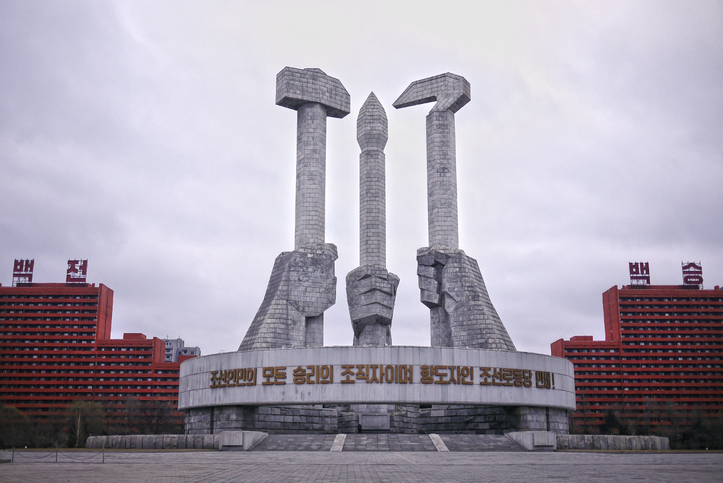Chinese tourists are still visiting Pyongyang from China’s border city of Dandong, tourism sources say, even after authorities unofficially halted the tours just ahead of U.S. President Donald Trump’s visit to China last month.
A group of 40 Chinese tourists left on Friday from the border city of Dandong to Pyongyang, two sources with direct knowledge of the matter told Reuters, a sign local authorities have not been strongly enforcing curbs on tourist flows.
“This is the largest group to go in from Dandong since the curb,” a tour operator said, adding the tourists travelled by train into North Korea for a four-day tour.
The Dandong Tourism Bureau declined to be interviewed for this story. When asked for comment, China’s foreign ministry said they did “not understand the situation.”
Local businesses in China are known to find ways around policies introduced by local authorities or Beijing, whether in good times or bad.
“There’s always a way around government policies,” said one Dandong-based tourism source. “You know how Chinese people are.”
“I think the central government will be very annoyed at Dandong for lifting the travel restriction,” the tour operator said.
MONEY-MAKER FOR NORTH
Tourism to North Korea is not banned by the United Nations and is one of the few remaining ways that North Korea earns hard currency. The Korea Maritime Institute, a South Korean think-tank, estimates that tourism generates about $44 million in annual revenue for North Korea.
The U.N. has ramped up sanctions over North Korea’s accelerating missile programme over the past year, curbing key export industries including coal, seafood and textiles.
Simon Cockerell, head of Beijing-based Koryo Tours which organises travel to North Korea, said he saw 3 to 4 busloads of Chinese tourists in Pyongyang in mid-November. “But I’m not sure where they entered from or what visas they were on,” he said.
“If you have a visa to North Korea, it doesn’t say where you can and can’t go. So once you enter into Sinuiju or Rason, you could travel onwards to Pyongyang. The North Koreans wouldn’t care,” Cockerell said.
Sinuiju and Rason are popular entry points for Chinese tourists travelling overland into North Korea.
TRUMP’S VISIT
China never publicly announced a ban on Chinese tourists visiting Pyongyang and strongly opposes unilateral sanctions, which it says undermines U.N. unity.
But the day before U.S President Donald Trump’s first official visit to China in early November, Reuters exclusively reported that the Dandong Tourism Bureau had told Chinese tour operators based in Dandong to halt trips to North Korea’s capital of Pyongyang.
Trump has frequently praised Chinese President Xi Jinping Trump with whom he has been working to exert pressure on North Korea through strict enforcement of sanctions over its nuclear and ballistic missile programs.
Dandong, a city of 800,000 people in northeastern Liaoning province, is the main trading hub on the Chinese side of the border and most tour companies that take Chinese tourists to North Korea are based there. The U.N. sanctions have particularly hit Dandong’s economy this year.
Almost all tours to North Korea have stopped and many Dandong-based companies who traditionally conducted business with North Korea are struggling, sources told Reuters.
“A lot of the more successful Chinese businessmen have gone on holidays because there’s nothing for them to do around here at the moment,” said one Chinese businessman in Dandong.
China’s trade with North Korea has already fallen to its lowest in months. Beijing has repeatedly said it is rigorously enforcing U.N. resolutions aimed at reining in Pyongyang’s missile and nuclear programmes.
North Korea has accelerated the pace of its missile tests this year. Pyongyang said its latest test on Nov. 28 was an intercontinental ballistic missile that it said could deliver heavy nuclear warheads anywhere in the continental United States.






